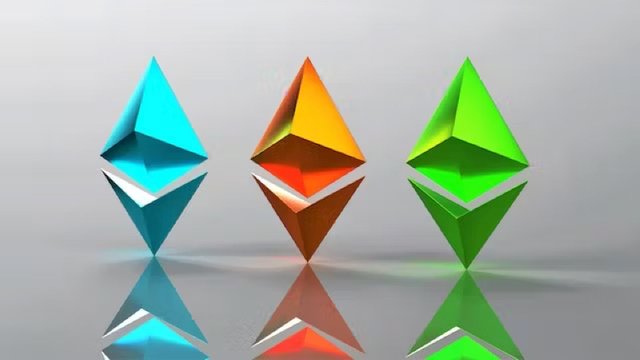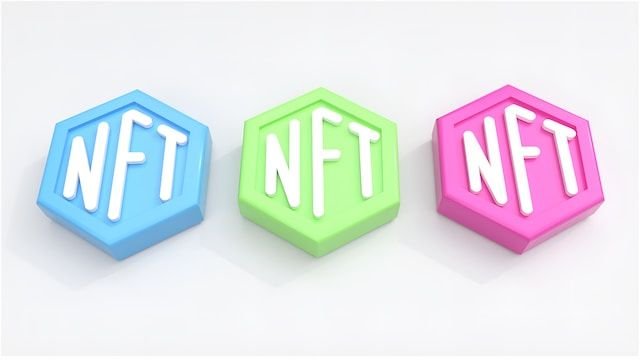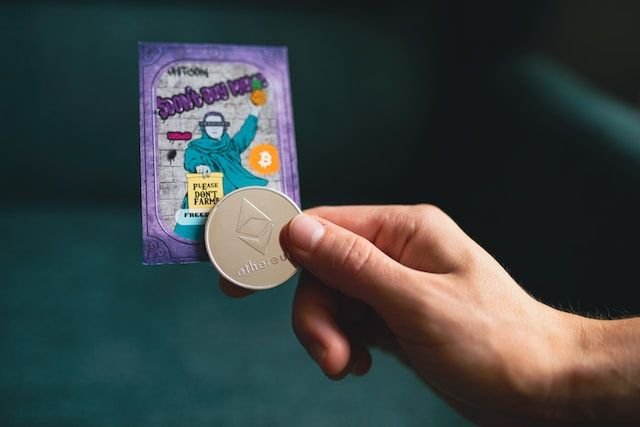What is ERC-721: The Foundation of Non-Fungible Tokens (NFTs)

The rise of blockchain technology has paved the way for the creation and ownership of unique digital assets through the use of non-fungible tokens (NFTs).
At the forefront of this revolutionary movement is the ERC-721 standard, a powerful protocol that has enabled the seamless creation, management, and exchange of NFTs on the Ethereum blockchain. Keep reading as we explore the fundamental concepts of ERC-721, its core features, and the impact it has had on the world of digital collectibles, art, and beyond.

Understanding Non-Fungible Tokens (NFTs)
Non-fungible tokens (NFTs) have emerged as a groundbreaking concept in the world of digital assets. Unlike cryptocurrencies such as Bitcoin or Ethereum, which are fungible and can be exchanged on a one-to-one basis, NFTs are unique and indivisible tokens that represent ownership or proof of authenticity for a particular item or piece of content.
Whether it's digital art, collectibles, virtual real estate, or even virtual pets, NFTs have opened a new realm of possibilities for creators, collectors, and enthusiasts alike.
Thanks to NFTs, all the benefits found in the world of art can be enjoyed digitally. But because of their non-fungibility, this makes it very difficult to exchange NFTs across platforms and wallets. This is where ERC-721 comes in.
Related: Non-Fungible Tokens (NFTs) Basics Explained
Key Features and Functionality of ERC-721
ERC-721, the Ethereum token standard for non-fungible tokens (NFTs), brings a unique set of features and functionality that enable the creation, ownership, and transfer of distinct digital assets. All NFTs which are built on the ERC-721 token standard are interchangeable across dapps that use that same token standard to build their platform.
The ERC-721 token standard specifies several aspects which must be present in an NFT they include identification properties that display token ownership, non-fungibility, indivisibility, specifications for metadata, and additional information and rules about how the token may be transferred and traded. All these aspects work together to create interoperability for NFTs.
How to Implement ERC-721
If you are wanting to build an NFT based on ERC-721 the most important aspect is that the contracts you create are coded in Solidity, the native programing language of Ethereum. It is also recommended to use development tools that are suitable for development on the Ethereum Virtual machine. Some tools which can help include Remix, Truffle, and Hardhat.
For those who are not programmers, there are many direct-to-market NFT building tools that can help you build NFTs that comply with the regulations of ERC-721. If you are building your own platform from scratch, it is a much more complicated process which includes importing the ERC-721 interface, specifying contract inheritance, and a process of token ID and mapping.
Related: How to Make Your Own NFT
Use Cases and Adoption of ERC-721 Tokens
Surprisingly, ERC-721 isn’t just for NFTs, in fact, this token standard has been used to expand in multiple areas including:
- Art and creative expression on the blockchain.
- Gaming and virtual worlds.
- Real-world asset representation and tokenization.
- Fan engagement, ticketing, and event management for sports teams.
ERC-721 has made it so that visuals can be moved on the blockchain and used between a variety of smart contracts. This has led to a rise in NFT usage in video games and more. The most famous video games using ERC-721 are CryptoKitties, Axie Infinity, The Sandbox, and Decentraland.
It has also allowed real-world assets, such as homes and artwork, to enter the blockchain while still granting the artist royalties when their work is used. Some of the more famous cases of this include artwork that is sold on marketplaces like Foundation and Nifty Gateway.
Related: What is Axie Infinity?

Challenges and Considerations of ERC-721
While ERC-721 tokens have gained significant traction and adoption, they also come with certain challenges and considerations. It is important to be aware of these aspects when working with ERC-721 tokens. Let's explore some of the key challenges and considerations:
Scalability and Network Congestion
The Ethereum blockchain, on which ERC-721 tokens are primarily built, has faced scalability issues during periods of high network congestion. Increased activity, such as popular NFT sales or viral applications, can lead to high gas fees and slower transaction processing times.
As the demand for ERC-721 tokens grows, scalability solutions like layer 2 protocols and Ethereum 2.0 are being explored to address these challenges.
Environmental Impact
The energy consumption of blockchain networks, particularly those utilizing proof-of-work consensus mechanisms like Ethereum, has raised concerns about the carbon footprint of NFTs. Artists and users should consider the environmental impact of their activities and explore alternative blockchain networks with more eco-friendly consensus mechanisms like proof-of-stake.
High Entry Costs
Creating and minting ERC-721 tokens on the Ethereum network involves gas fees, which can be substantial during periods of network congestion. Artists and creators should consider the costs associated with minting and listing their NFTs, as these expenses may affect their profitability and accessibility.
Copyright and Intellectual Property Concerns
The ownership and transfer of digital assets through ERC-721 tokens raise questions regarding copyright infringement and intellectual property rights. Especially when it comes to AI NFT apps that remix previous projects to create new ones.
It is crucial to ensure that the content being tokenized does not infringe upon the rights of others and that appropriate licenses and permissions are obtained. It is also important to keep an eye on regulations in this area because what is legal today could be illegal tomorrow.
Market Volatility and Speculation
The NFT market has experienced rapid growth and speculative trading, resulting in high price volatility. Buyers and sellers should exercise caution and conduct thorough research before engaging in NFT transactions, as values can fluctuate significantly.
There are some examples of individuals purchasing an NFT for millions only to find a few days later that it is worth almost nothing. It is never recommended to spend money you don’t intend to lose on NFTs.
The long-term value and sustainability of NFTs remain uncertain, as the market is relatively new and evolving.
Overall, ERC-721 has revolutionized the world of NFTs, providing a solid foundation for the creation and exchange of unique digital assets on the Ethereum blockchain. Its key features, interoperability, and wide-ranging applications have fueled the growth of the NFT market and transformed industries.
As the ecosystem continues to evolve, it is essential to address the challenges and explore innovative solutions to further enhance ERC-721's capabilities. The future of NFTs and their impact on art, collectibles, and digital ownership looks promising, but it is not guaranteed, so ensure you proceed into the ERC-721 NFT space with caution.
You May Also Enjoy: Can You Make Money With CryptoGames?
This article was brought to you by the Bitcoin Dice on MintDice - play and win today. Originally posted to the MintDice Blog.